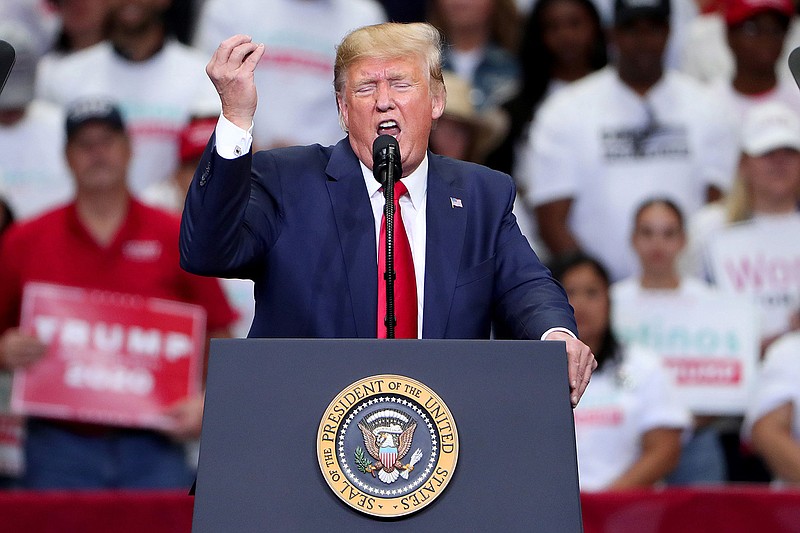FORT WORTH, Texas - President Donald Trump's recent North Texas visit required hundreds of law enforcers to team with Secret Service to control crowds, redirect traffic, provide security and more.
But unlike in some other communities where officials billed the president's campaign for security costs, police and sheriff officials in Johnson County, Fort Worth and Dallas say they won't send Trump a bill.
"We needed to provide security and do whatever was necessary to protect" Trump, Johnson County Sheriff Deputy Aaron Pitts said. "This was a presidential visit."
Officials in Albuquerque, N.M., recently sent the president's campaign an invoice for costs related to his visit. Other cities that have done the same for visits, mainly to cover police-related costs, include El Paso, Texas; Green Bay, Wis.; and Erie, Pa. A dozen cities say the president's campaign has left unpaid bills for rallies in their communities that now have a combined total of more than $1 million.
Trump's campaign told The Hill that any bills should be sent to the Secret Service, which coordinates with law enforcers during presidential visits. Now a Democratic congressman, Bill Pascrell of New Jersey, has asked the FEC to determine whether Trump's campaign is violating the campaign finance requirements by not reporting these "debts" on filings.
"FEC regulations on reporting disputed debts clearly state that these disputes must be reported until the dispute is resolved," Pascrell's letter stated.
As for the president's Oct. 17 North Texas visit, law enforcement officials said much of the security that day was covered by regularly scheduled officers. "Dignitaries are never charged for what is a city responsibility," Fort Worth Police Lt. Brandon O'Neil said in an email.
"This is the same (thing) we do, and have done, for all past Presidents, Vice-presidents, Speakers of the House, Presidential nominees once named, Foreign dignitaries, etc."
The president started his North Texas visit by landing at the Naval Air Station Joint Reserve base and then heading to a fundraiser at the City Club in downtown Fort Worth.
About 100 police officers were involved in escorting the presidential motorcade to the fundraiser, helping secure the area while he was there and escorting the motorcade back to the base.
"From the PD aspect, there was no actual or additional security costs associated with this visit," O'Neil wrote. "It was staffed with regularly scheduled on-duty officers being a work day during the work week."
Once back at the base, Trump took a helicopter to Johnson County to visit the new Louis Vuitton workshop on the sprawling Rochambeau Ranch in Keene, about 30 miles south of downtown Fort Worth.
It was a normal work day for nearly two dozen deputies in Johnson County. Another 15 were called in to work.
Deputies directed traffic, put out cones and limited traffic going out to the ranch, as well as helping with general security. Johnson County deputies ended up with nearly $5,000 in overtime for the day. They are not sending a bill to Trump's campaign.
"When you're called by the Secret Service asking for security for the president," an agency does what's needed, Pitts said. "We needed to provide security."
After leaving Johnson County, Trump helicoptered to Love Field, where a motorcade took him to a campaign rally at the American Airlines Center. After his rally, the motorcade took him back to Love Field, where he boarded Air Force One to head back to Washington, D.C.
Dallas officials have estimated that security costs for the rally cost the city around $170,000.
"But the city doesn't charge for head of state visits, so there isn't a 'bill,'" said Tristan Hallman, a spokesman for Dallas Mayor Eric Johnson.
Dallas City Councilman Lee Kleinman wonders if that should change.
Kleinman said he would like for the city to consider whether to change that policy in the future.
"Why should the citizens of Dallas bear the burden when we could be using the money to fix our roads or hire more cops?" he asked.

